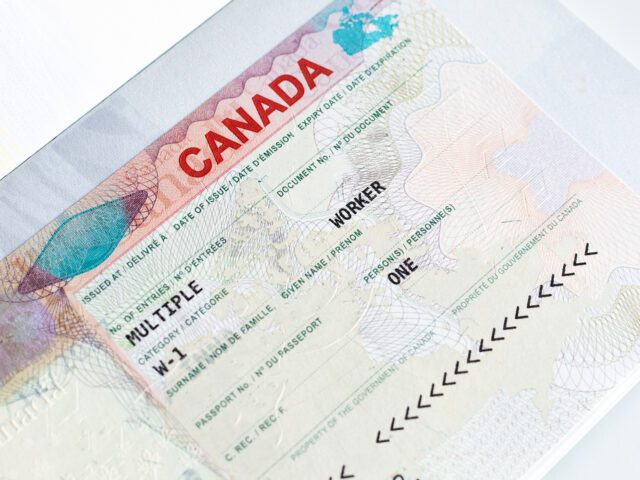What are the responsibilities of employers hiring foreign workers on a work permit in Canada?

What are the responsibilities of employers hiring foreign workers on a work permit in Canada?
Canada is a country that welcomes foreign workers to its labour market, as they help to fill critical labour shortages in various industries. Employers who hire foreign workers on a work permit have certain responsibilities and obligations to ensure that the workers are treated fairly and that their employment in Canada is legal. In this article, we will discuss the responsibilities of employers hiring foreign workers on a work permit in Canada.
Obtain a positive LMIA
Before hiring a foreign worker on a work permit, the employer must obtain a positive Labour Market Impact Assessment (LMIA) from Employment and Social Development Canada (ESDC). The LMIA process ensures that there are no Canadian citizens or permanent residents available to do the job and that the foreign worker will not negatively impact the Canadian labour market. The employer must also pay the required LMIA application fee.
Provide a valid job offer
Employers must provide a valid job offer to the foreign worker, which includes details such as the job duties, wages, and working conditions. The job offer must also meet the prevailing wage in the specific occupation and region. The employer must provide the foreign worker with a copy of the job offer letter and ensure that the worker understands the terms of employment.
Ensure that the worker has a valid work permit
The employer must ensure that the foreign worker has a valid work permit before they start working in Canada. The work permit must be specific to the job and employer and must be valid for the duration of the employment. The employer must also verify the worker’s status in Canada before allowing them to start work.
Comply with employment standards and labour laws
Employers must comply with Canadian employment standards and labour laws, including minimum wage, overtime pay, and other benefits. Employers must also provide a safe working environment and comply with health and safety regulations. The employer must also pay into Canada’s employment insurance and workers’ compensation programs for the foreign worker.

Provide support for the worker's settlement and integration
Employers must provide support for the foreign worker’s settlement and integration into Canada. This includes assistance with finding housing, obtaining health care coverage, and connecting with community resources. Employers should also provide opportunities for the worker to improve their language skills and learn about Canadian culture.
Providing support for the worker’s settlement and integration is an important responsibility of employers who hire foreign workers on a work permit in Canada. The goal is to help the workers adjust to their new environment, overcome any cultural or language barriers, and feel welcome and supported in their new community. Here are some ways that employers can provide support for the worker’s settlement and integration:
Provide housing information:
Employers can provide information and resources to help the worker find suitable housing in the local area. This may include providing information on rental properties, connecting the worker with local real estate agents, or providing a list of recommended neighbourhoods.
Assist with obtaining health care coverage:
Employers can help the worker obtain health care coverage in Canada, which is a requirement for all temporary foreign workers. This may involve providing information on the various health care plans available, assisting with the enrollment process, and answering any questions the worker may have.
Connect the worker with community resources:
Employers can help the worker connect with community resources such as language classes, cultural events, and volunteer opportunities. This can help the worker feel more connected to the community and improve their overall well-being.
Provide language training:
Employers can provide language training to help the worker improve their language skills and communicate more effectively with colleagues and customers. This may involve providing language classes or arranging for language tutors.
Provide information on Canadian culture:
Employers can provide information on Canadian culture and customs to help the workers understand and adapt to their new environment. This may include providing information on holidays, festivals, and social norms.
Offer social support:
Employers can offer social support to the worker by organizing social events, such as company outings or picnics. This can help the worker feel more included and part of the team.
Provide access to counselling services:
Employers can provide access to counselling services to help the worker cope with any stress or adjustment issues they may be experiencing. This can include providing information on counselling services available in the community or through the employee assistance program.
Providing support for the worker’s settlement and integration is not only a responsibility of the employer, but it also benefits the employer in the long run. A happy and supported worker is more likely to be productive and committed to their job, which can ultimately benefit the employer’s business.
Keep records and comply with reporting requirements
Employers must keep records of the foreign worker’s employment, including their hours worked and wages paid. Employers must also comply with reporting requirements, such as reporting any changes to the worker’s employment status or address. Employers must also provide information to the government as required, such as in the event of a workplace injury or illness.
Notify ESDC of any changes to the worker's employment status
Employers must notify ESDC of any changes to the foreign worker’s employment status, such as a change in job duties or a change in employer. If the foreign worker is terminated before the end of their work permit, the employer must provide the worker with a reasonable notice period or pay in lieu of notice.
In conclusion, employers who hire foreign workers on a work permit in Canada have certain responsibilities and obligations to ensure that the workers are treated fairly and that their employment in Canada is legal. Employers must obtain a positive LMIA, provide a valid job offer, ensure that the worker has a valid work permit, comply with employment standards and labour laws, provide support for settlement and integration, keep records and comply with reporting requirements, and notify ESDC of any changes to the worker’s employment status. Failure to meet these responsibilities and obligations can result in penalties and negative consequences for both the employer and the worker.
Latest Articles
Subscribe Newsletter
Get instant access to breaking news, the hottest reviews, great deals and helpful tips.








